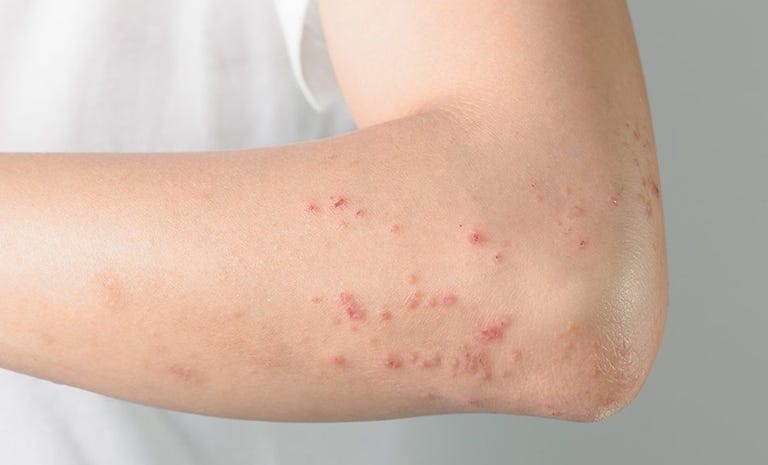Allergies can be a major inconvenience, especially when they manifest on the skin. Skin allergies can cause a range of symptoms such as itching, redness, swelling, and even pain. While there are various conventional treatments available, many people are turning to alternative therapies like acupuncture to find relief from skin allergies. Acupuncture, a traditional Chinese medicine practice, involves inserting thin needles into specific points on the body to promote healing and alleviate symptoms. In recent years, research has shown promising results regarding the effectiveness of acupuncture in treating skin allergies. Now Wellness Clinic offers acupuncture sessions tailored to address skin allergy symptoms, providing patients with a holistic approach to managing their condition.
The Basics of Acupuncture
Before delving into the benefits of acupuncture for skin allergies, it's essential to understand how this ancient practice works. Acupuncture is based on the concept of energy flow, or qi, through pathways in the body known as meridians. By inserting needles into specific points along these meridians, acupuncturists aim to restore the balance of qi and promote the body's natural healing process. Acupuncture is believed to stimulate the nervous system, release endorphins (the body's natural painkillers), and improve blood circulation.
How Acupuncture Can Help with Skin Allergies
When it comes to skin allergies, acupuncture can offer relief in several ways:
- Reduces inflammation: Acupuncture has anti-inflammatory properties that can help alleviate swelling, redness, and itching associated with skin allergies.
- Regulates the immune response: By balancing the body's immune system, acupuncture can help prevent allergic reactions and minimize their severity.
- Promotes relaxation: Stress can exacerbate skin allergies, so the calming effect of acupuncture can help reduce stress levels and improve skin conditions.
- Enhances skin health: Acupuncture can improve blood circulation and stimulate collagen production, leading to healthier and more resilient skin.
Research on Acupuncture for Skin Allergies
Several studies have investigated the efficacy of acupuncture in treating various skin conditions, including allergies. While more research is needed to establish acupuncture as a definitive treatment for skin allergies, the existing evidence is promising:
Study Findings
- A 2017 study published in the Journal of Alternative and Complementary Medicine found that acupuncture significantly reduced itching and improved quality of life in patients with atopic dermatitis.
- Another study from 2019, published in the Journal of Dermatology, demonstrated that acupuncture was effective in decreasing inflammation and improving skin barrier function in patients with eczema.
- A review published in the Journal of Acupuncture and Meridian Studies in 2020 concluded that acupuncture could be a valuable adjunct therapy for managing various skin disorders, including allergies.
What to Expect During an Acupuncture Session
If you're considering acupuncture for skin allergy relief, here's what you can expect during a typical session:
Initial Consultation
- The acupuncturist will conduct a thorough assessment of your skin condition, medical history, and overall health.
- You may be asked about your allergy triggers, stress levels, and lifestyle habits.
Acupuncture Treatment
- You will lie comfortably on a treatment table while the acupuncturist inserts thin needles into specific acupoints on your body.
- The needles are typically left in place for 20-30 minutes while you relax.
- You may feel a slight tingling sensation or warmth during the treatment, but it should not be painful.
Follow-Up Care
- Depending on your skin condition and response to treatment, your acupuncturist may recommend a series of sessions to achieve optimal results.
- You may also receive lifestyle and dietary recommendations to support your skin health and overall well-being.
Choosing a Qualified Acupuncturist
When seeking acupuncture for skin allergy relief, it's crucial to select a qualified and experienced acupuncturist. Here are some tips to help you find the right practitioner:
Educational Background
- Look for an acupuncturist who has completed a formal training program from an accredited institution.
- Check if the acupuncturist is licensed or certified by a recognized regulatory body.
Experience and Specialization
- Find out if the acupuncturist has experience treating skin allergies and skin conditions specifically.
- Ask about their approach to treatment and how they tailor acupuncture sessions to individual needs.
Client Reviews and Recommendations
- Read reviews and testimonials from previous clients to gauge the acupuncturist's reputation and success rate.
- Seek referrals from friends, family, or healthcare providers who have had positive experiences with acupuncture.
By choosing a skilled acupuncturist, you can maximize the benefits of acupuncture for skin allergy relief and improve your overall skin health.
Conclusion
Acupuncture offers a holistic approach to managing skin allergies by addressing the root cause of the condition and promoting overall well-being. With its potential to reduce inflammation, regulate the immune response, and enhance skin health, acupuncture can be a valuable addition to conventional treatments for skin allergies. If you're struggling with skin allergies, consider exploring the benefits of acupuncture under the guidance of a qualified practitioner. Together, you can unlock the healing potential of this ancient practice and experience relief from skin allergy symptoms.

